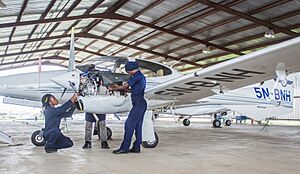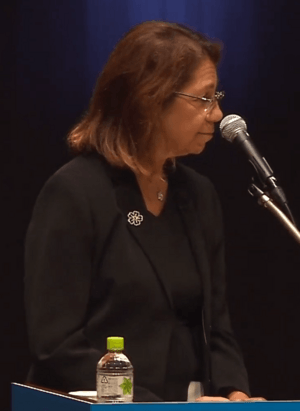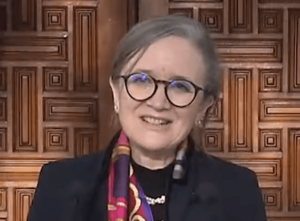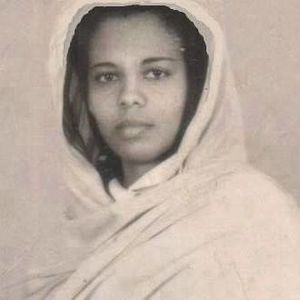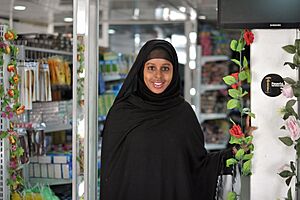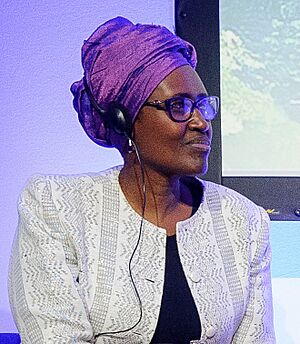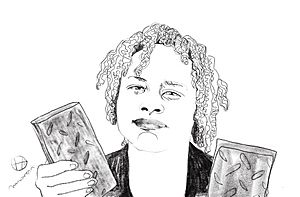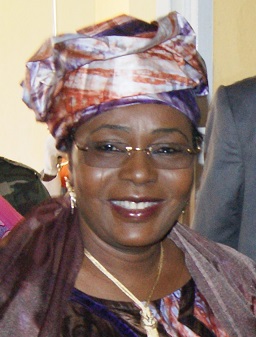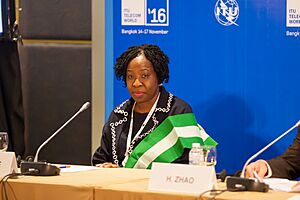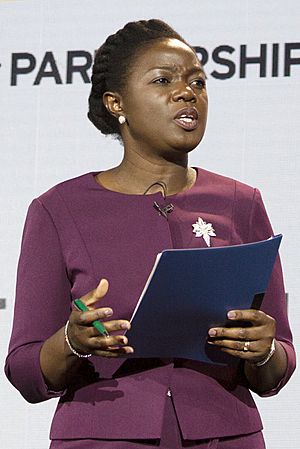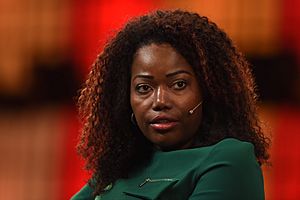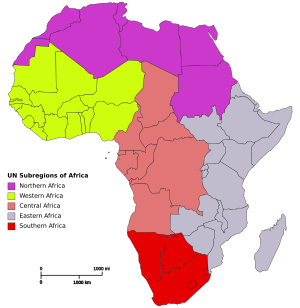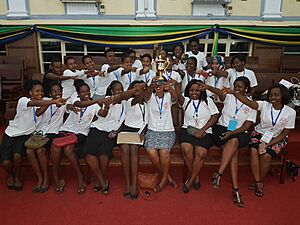African women in engineering facts for kids
Around the world, not enough women work in science, technology, engineering, and math (STEM) jobs. This is especially true in Africa, where less than 20% of workers in these fields are women. But even with this challenge, many important female engineers come from all over Africa. Also, many groups, both in and outside Africa, are working to help more women join these exciting careers.
Contents
Amazing African Women in Engineering
Engineers from Northern Africa
Dr. Tayseer Abu Al-Nasr is an electrical engineer from Egypt. She earned her degrees from Cairo University and Queen's University in Canada. Today, she leads engineering schools at the University of British Columbia and the University of Ottawa.
Akissa Bahri is an agricultural engineer from Tunisia. She used to be a professor at the National Agricultural Institute of Tunisia. She earned her engineering doctorate in France and her Ph.D. in Water Resources Engineering in Sweden.
Najla Bouden is a geoscientist from Tunisia. She is also the current Prime Minister of Tunisia. She earned her Ph.D. in geological engineering. She became Prime Minister on October 11, 2021. This made her the first woman to be a prime minister in the Arab World.
Zeinab Elobeid Yousif was an aircraft engineer from Sudan. She earned her master’s degree in aeronautical engineering in 1995. She was the first woman to get this degree.
Dr. Awatef Hamed is an aerospace engineer from Egypt. She works as a researcher at the University of Cincinnati, studying jet-engine technology. Dr. Hamed was the first woman to lead a college aerospace department. She became the head of the University of Cincinnati’s Aerospace Systems School in 2001. She is known around the world for her research on how air particles affect turbine fan blades.
Engineers from Eastern Africa
Nasra Agil is a civil engineer from Somalia and Canada. She earned her bachelor’s degree in civil engineering from Ryerson University. She was one of the first women of Somali background to get an engineering degree in Canada.
Dr. Gertrude Mwangala Akapelwa is an IBM Systems Engineer from Zambia. She earned degrees from the University of Zambia, Harvard University, and the University of Liverpool. She helped start Victoria Falls University of Technology and is now its Vice-Chancellor.
Winnie Byanyima is an aeronautical engineer from Uganda. She earned her bachelor’s degree in aeronautical engineering from the University of Manchester. She was the first Ugandan woman to get a degree in this field. She also has a master’s degree in mechanical engineering. She is currently the executive director for UNAIDS.
Natalie Payida Jabangwe is a computer engineer from Zimbabwe. She earned her bachelor’s degree in computer engineering and a master’s degree in business. In 2018, a French group named her one of the “100 Africa Economic Leaders for Tomorrow.”
Germaine Kamayirese is an electromechanical engineer from Rwanda. She earned her bachelor’s degree in electrical mechanical engineering. She also has a master’s degree in communications management. In 2014, she became the Minister of State for Infrastructure. She managed things like sanitation, power, and other parts of Rwanda’s infrastructure.
Frannie Léautier is a civil engineer from Tanzania. She earned her bachelor’s degree in civil engineering from the University of Dar es Salaam. She also has a master’s degree in transportation and a Ph.D. in Civil Engineering from MIT. She worked for the World Bank for many years, leading the World Bank Institute for six years.
Nzambi Matee is a civil engineer from Kenya. She earned her bachelor’s degree in applied physics. In 2017, she started her own company called Gjenge Makers. This company turns hard-to-recycle plastics into bricks that are stronger than concrete.
Engineers from Central Africa
Therese Izay-Kirongozi is an industrial engineer from Congo. She is famous for creating humanoid traffic robots. These robots help control traffic in Kinshasa, the capital city.
Dr. Ngalula Mubenga is an electrical engineer from Congo. She earned her bachelor’s, master’s, and doctoral degrees in electrical engineering. In 2017, the president of the Democratic Republic of the Congo asked her to join the board of directors for the country’s national electric company.
Mbu Waindim is a woman from Cameroon. She earned a bachelor’s degree in aerospace engineering and mathematical science in 2012. She then got a master’s and Ph.D. in aerospace engineering. She was the first Cameroonian woman to do so. She has worked at NASA and for the United States Air Force.
Engineers from Southern Africa
Veliswa Boya is one of South Africa’s first cloud engineers. She works for Amazon Web Services in Africa. She helps developers in the region grow their skills. Veliswa has experience in engineering, architecture, and consulting. She has also earned important certifications in cloud technology.
Bavelile Hlongwa was a chemical engineer in South Africa. She became the Deputy Minister of Mineral Resources and Energy in 2019. She was also active in politics as a member of the African National Congress. She served in the National Assembly of South Africa.
Hilary Kahn (1943-2007) was born in South Africa. She moved to England for university and graduated in computing in 1965. She worked on early computers and programming languages. Later, she worked on computer-aided design and software engineering. She also helped design the Manchester MU5 computer system.
Naadiya Moosajee was born in South Africa in 1984. She earned her bachelor’s degree in Civil Engineering and a master’s degree in Transportation Engineering. She also has a master’s degree in business administration. Early in her career, she helped manage transportation for the 2010 FIFA World Cup. In 2016, she co-founded WomHub. This company helps female founders in STEM fields. WomHub works to make technology more inclusive, especially in AI and Cyber Security.
Engineers from Western Africa
Mila Aziablé was born in Togo and is the youngest minister in her government. She studied mechanical engineering in France. She later studied gas engineering and earned a master’s degree in development and management policies.
Ndèye Tické Ndiaye Diop is an engineer and politician from Senegal. Her engineering work focused on technology used in fisheries. She became the Secretary-General to the Ministry of Fisheries. She is now the Minister of Digital Economy and Telecommunication in Senegal. She is also the government's spokeswoman.
Aïssata Issoufou Mahamadou, the first lady of Niger, is a chemical engineer. She is also a supporter of healthcare. She was one of the first women in Niger to pursue a scientific engineering field. She earned degrees in mineral exploration and chemistry.
Funke Opeke is an electrical engineer from Nigeria. She earned her degrees from Obafemi Awolowo University and Columbia University. She worked for Verizon Communications. Her biggest contribution to Nigeria is founding OneMain Cable Company. This company provides communication services. OneMain Cable built the first private open-access cable that connects Portugal to South Africa.
Lucy Quist is an electrical engineer and business executive from Ghana and Britain. She graduated from the University of East London with top honors. She also earned an MBA in France. She has worked for big companies like Ford Motor Company and Vodafone. She also helped start Quist Blue Diamond and the Executive Women Network. Lucy Quist is currently a managing director at Morgan Stanley. She has also written a book called “The Bold New Normal.”
Mary Spio is an astronautical engineer and entrepreneur from Ghana. She earned a bachelor’s degree in electrical engineering and a master’s in electrical engineering. She served in the United States Air Force. She also worked on a NASA project and contributed to companies like Microsoft XBOX. She became the head of satellite systems at Boeing. She also started her own company, CEEK Virtual Reality. This company aims to make Virtual Reality easier for everyone to use. Mary Spio is also an author.
Professional Organizations
| Organization | Country |
|---|---|
| African Women in Science and Engineering (AWSE) | Kenya, Tanzania, Uganda |
| Association of Professional Women Engineers of Nigeria (APWEN) | Nigeria |
| Association of South African Women in Science and Engineering | South Africa |
| Women in Engineering (WomEng) | South Africa |
| WomHub | South Africa |
]


